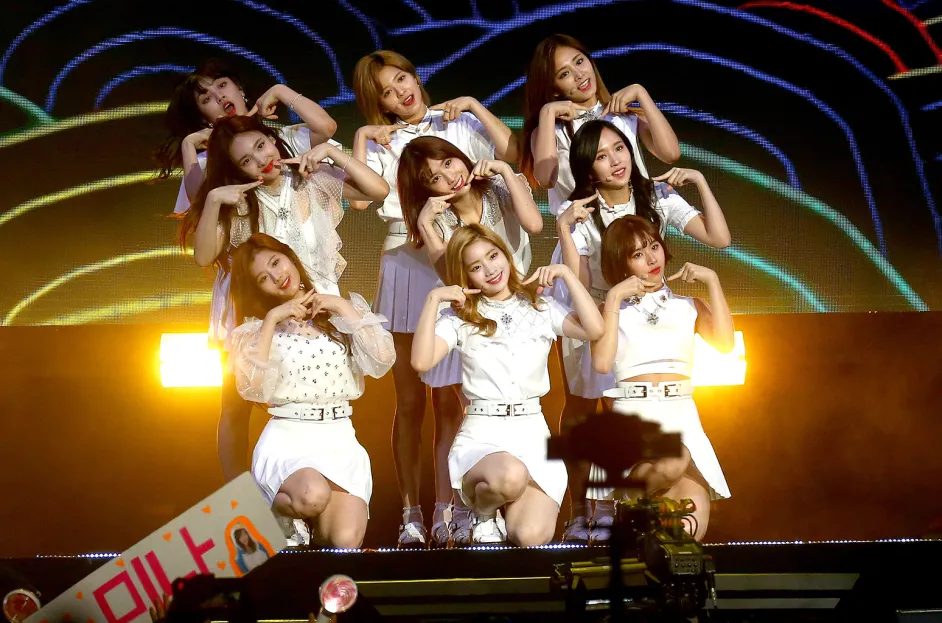Smashing – A seismic shift is happening in global entertainment. While Hollywood has long dominated the world’s cultural landscape, a new force from South Korea is challenging its reign. K-pop isn’t just about catchy tunes and synchronized dance moves anymore it’s becoming a full-fledged cultural phenomenon that’s reshaping music charts, box office numbers, and even fashion trends worldwide. But is this just a passing trend, or are we witnessing the beginning of a new entertainment era where K-pop surpasses Hollywood’s influence?
The Unstoppable Rise of K-pop’s Global Dominance
K-pop’s journey from a niche Asian music genre to a worldwide sensation has been nothing short of extraordinary. Groups like BTS and BLACKPINK aren’t just breaking records—they’re smashing them, outperforming Western artists in album sales, streaming numbers, and social media engagement. The K-pop industry’s meticulous training system, innovative marketing strategies, and dedicated fan culture have created a perfect storm for global domination. While Hollywood struggles with franchise fatigue, K-pop continues to deliver fresh, boundary-pushing content that resonates across languages and cultures.
Box Office vs. YouTube: Where the Real Battles Are Happening
Hollywood may still rule the box office, but K-pop is winning the digital war. Music videos from top K-pop acts regularly surpass Hollywood blockbusters in view counts, sometimes within mere hours of release. The recent collaboration between BTS and McDonald’s generated more online buzz than most Hollywood movie promotions. This shift in engagement metrics reveals where younger audiences are investing their attention—and it’s not necessarily in traditional cinema. The entertainment battlefield has moved online, and K-pop groups are better equipped for this new landscape.
Cultural Penetration: How K-pop Is Reshaping Western Entertainment
The influence of K-pop extends far beyond music charts. Western artists now routinely incorporate K-pop elements into their work, from choreography to fashion aesthetics. Hollywood studios are scrambling to produce K-pop-inspired content, while American record labels actively seek partnerships with Korean entertainment companies. Even language barriers are crumbling as more non-Korean fans embrace Korean lyrics. This cultural exchange is no longer one-sided—it’s becoming a fusion where K-pop sets the trends that Hollywood follows.
The Economic Powerhouse Behind the K-pop Machine
What makes K-pop’s challenge to Hollywood so formidable is its incredibly efficient business model. While Hollywood relies on massive budgets and established franchises, K-pop companies have perfected the art of monetizing fan engagement. From lightstick sales to exclusive fan meetings, the K-pop industry extracts value from every aspect of fandom. This economic engine allows K-pop to compete with—and sometimes outperform—Hollywood’s traditional revenue streams, all while operating at a fraction of the budget of major studio productions.
Generational Divide: Why Youth Culture Favors K-pop
The most telling sign of K-pop’s ascendancy lies in its demographic stronghold. While Hollywood struggles to connect with Gen Z and younger millennials, K-pop has become the defining cultural touchstone for these generations. The authenticity, work ethic, and social consciousness displayed by K-pop idols resonate more strongly with today’s youth than the often formulaic output of Hollywood. As these young fans grow into the primary consumers of entertainment, their preferences could permanently shift the balance of cultural power.
Hollywood’s Response: Adaptation or Irrelevance?
Faced with this cultural tsunami, Hollywood is at a crossroads. Some studios are attempting to co-opt the K-pop phenomenon through collaborations and K-pop-inspired content. Others remain stubbornly committed to traditional formulas. The entertainment industry’s future may depend on who can better synthesize these two worlds maintaining Hollywood’s storytelling strengths while embracing K-pop’s innovative approaches to fan engagement and global marketing.
The Verdict: A New Era of Shared Dominance
While it’s premature to declare K-pop the outright victor over Hollywood, the balance of cultural influence is undeniably shifting. We’re entering an era where these two entertainment powerhouses will likely coexist and feed off each other’s strengths. K-pop has proven that language and cultural barriers are no longer insurmountable in global entertainment. The question isn’t whether K-pop will overtake Hollywood, but rather how these two forces will reshape each other in the coming decade. One thing is certain: the entertainment world will never be the same.





